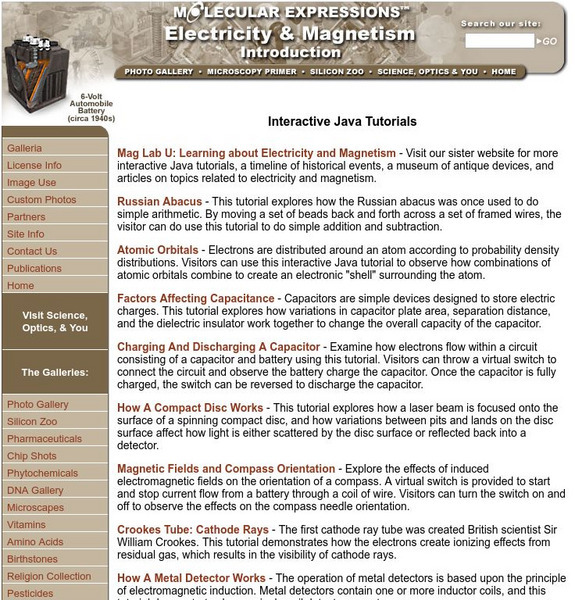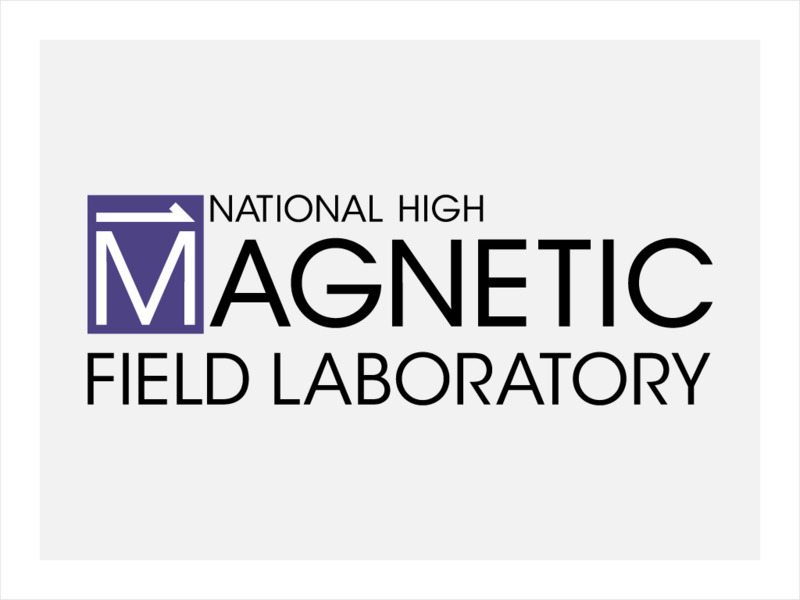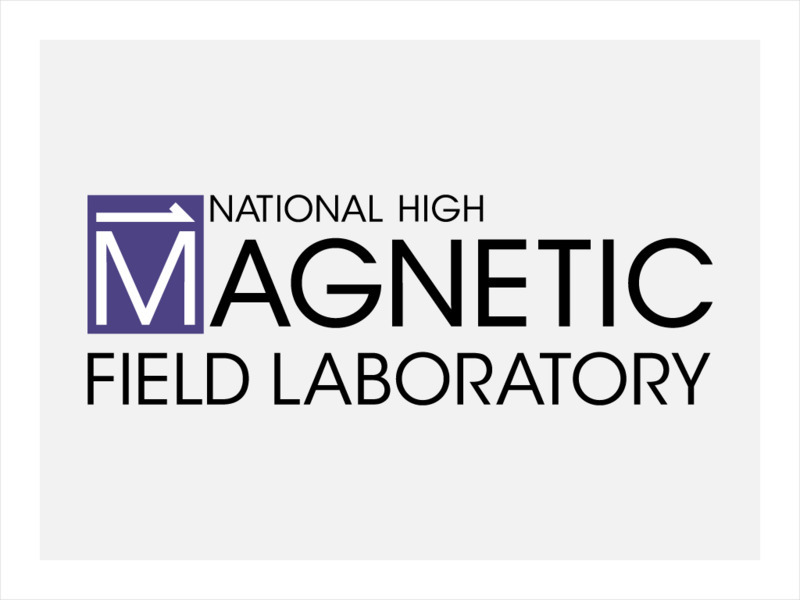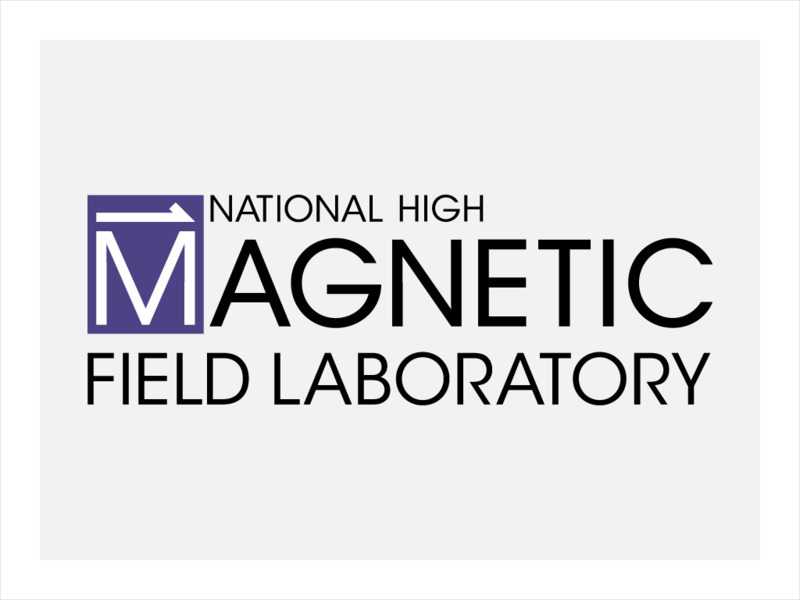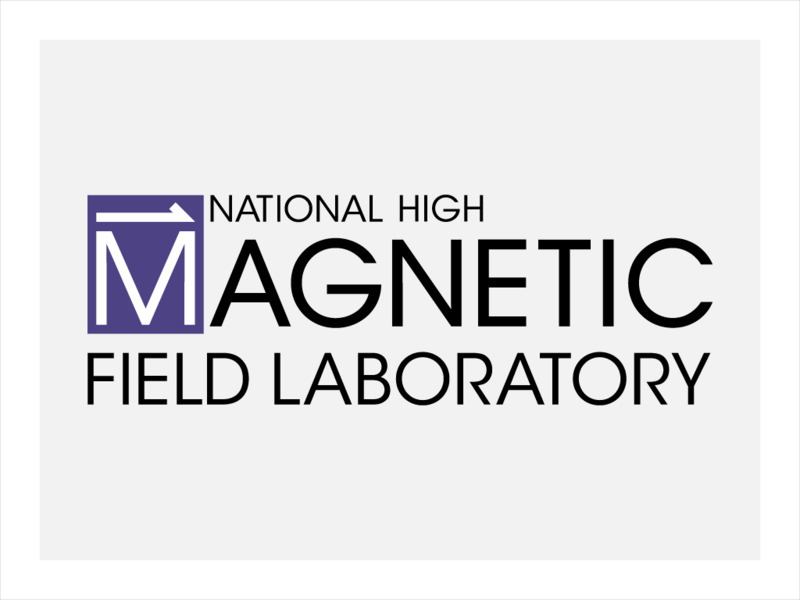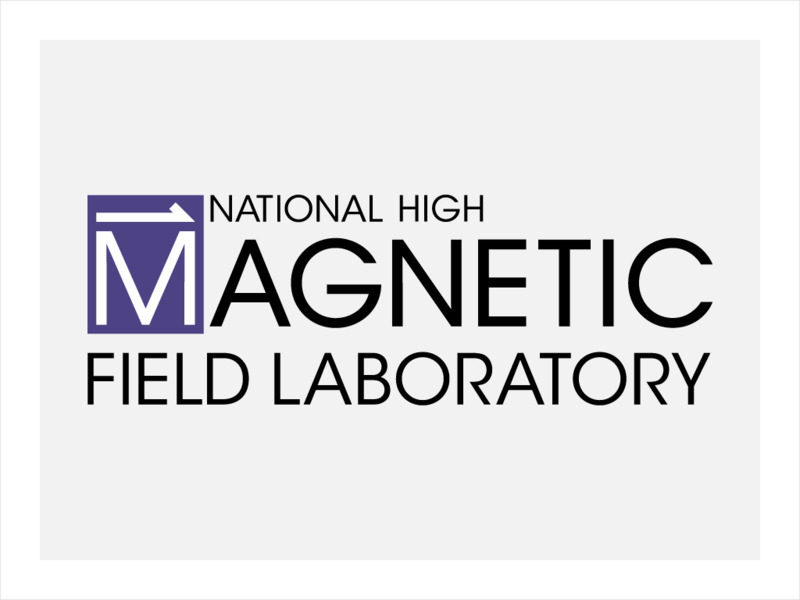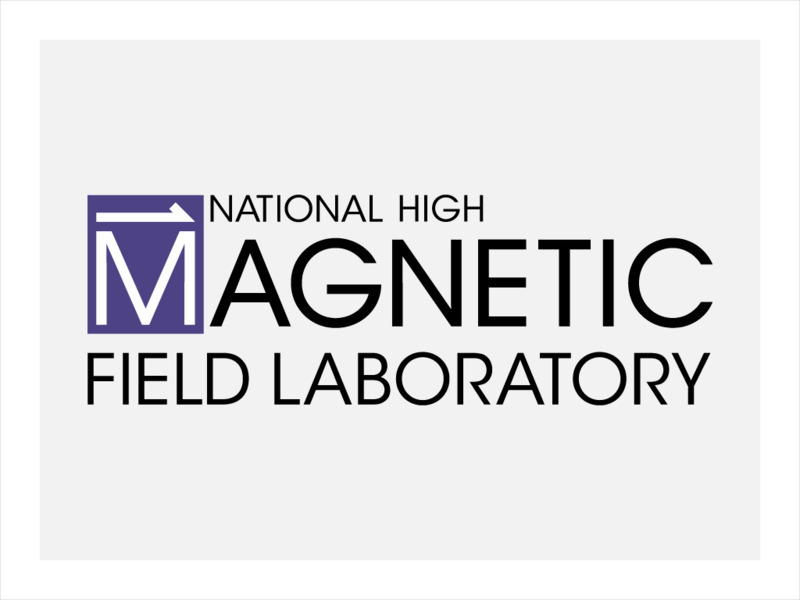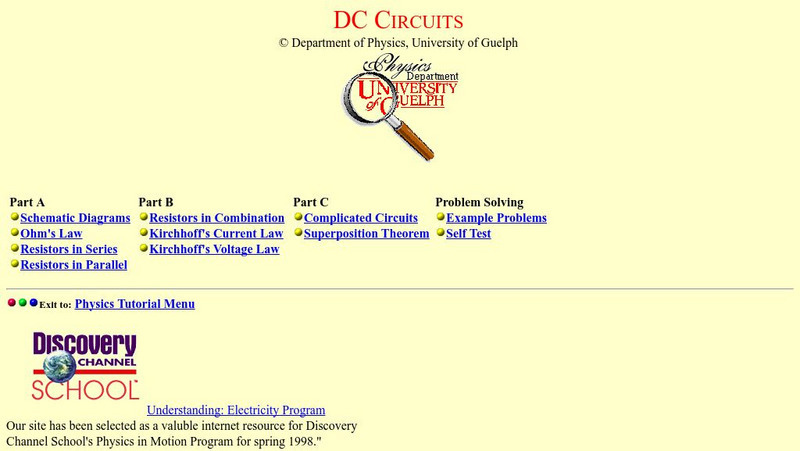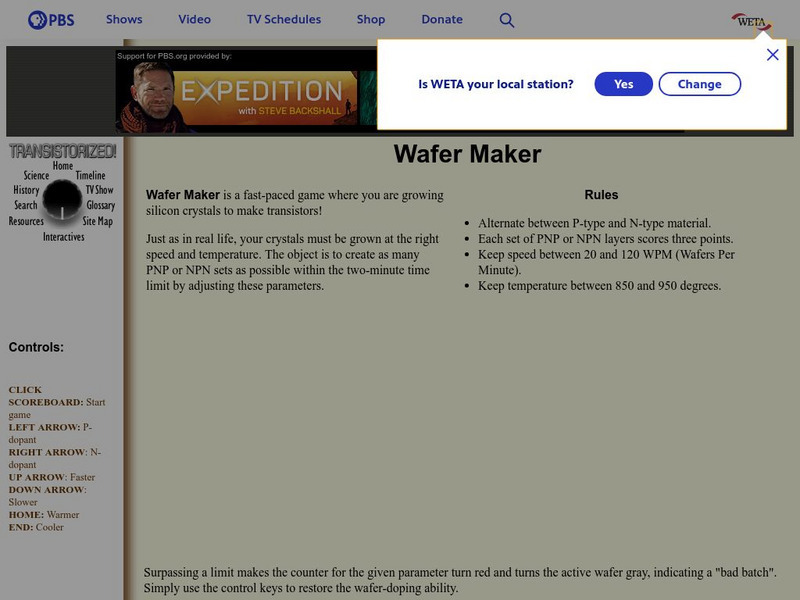Florida State University
Florida State University: Magnet Lab: Molecular Expressions: Electricity & Magnetism Java Tutorials
Molecular Expressions is a comprehensive scientific educational resource that features a considerable collection of interactive Java tutorials relating to electricity and magnetism. Tutorials range in complexity and difficulty of...
Other
Magnet Lab: The Basics of Nmr
The site is very easy to read and provides a thorough demystification of Nuclear Magnetic Resonance. Written by Dr. Joseph P. Hornak, a professor of Chemistry and Imaging Science at the Rochester Institute of Technology, the site breaks...
Florida State University
Florida State University: Magnet Lab: Team Tesla: How We Keep the World's Most Powerful Magnets in Shape
Our magnets are like world-class athletes - Team Tesla, if you will. They have an awful lot of power, but to stay in that kind of shape, they need to eat and drink - a lot.
National High Magnetic Field Laboratory
Magnet Academy: Superconductivity 101
An overview of the history, applications and science of superconductivity, including the Meissner effect, BCS theory, Type 1 and Type 2 superconductors and high-temperature superconductivity.
National High Magnetic Field Laboratory
Magnet Academy: Simple Electrical Cell
This is a Java tutorial showing the simple voltaic (or galvanic) electrical cell, which is the most basic type of "wet" cell and demonstrates the fundamental chemistry behind batteries.
National High Magnetic Field Laboratory
Magnet Academy: Mri Research
When you have the most powerful MRI machine in the world, there's a lot of exciting research going on. Read about some of the cutting-edge studies we do on neurodegenerative diseases, cancer, tobacco use, muscles and more.
National High Magnetic Field Laboratory
Magnet Academy: Mass Spectrometry: How to Weigh an Atom
It's hard enough to weigh something as itty bitty as atoms or molecules. Factor in that they're careening by faster than Jeff Gordon on steroids, and you get an idea what scientists are up against. Using comet particles from NASA's...
National High Magnetic Field Laboratory
Magnet Academy: Magnets From Mini to Mighty
If your knowledge of magnets ends with posting a to-do list on the fridge, add this to the list. Learn more about magnets! You can start here with a straightforward rundown of magnet types, uses and strengths, explained in a way that...
National High Magnetic Field Laboratory
Magnet Academy: Svante Arrhenius
Svante Arrhenius was born in Vik, Sweden, and became the first native of that country to win the Nobel Prize. The award for chemistry was bestowed to him in honor of his theory of electrolytic dissociation. Arrhenius also developed the...
National High Magnetic Field Laboratory
Magnet Academy: Roland Eotvos
Vasarosnamenyi Baro Eotvos Lorand, better known as Roland Eotvos or Lorand Eotvos throughout much of the world, was a Hungarian physicist who is most recognized for his extensive experimental work involving gravity, but who also made...
National High Magnetic Field Laboratory
Magnet Academy: Richard Feynman
Theoretical physicist Richard Phillips Feynman greatly simplified the way in which the interactions of particles could be described through his introduction of the diagrams that now bear his name (Feynman diagrams) and was a co-recipient...
National High Magnetic Field Laboratory
Magnet Academy: Robert Millikan
Robert Andrews Millikan was a prominent American physicist who made lasting contributions to both pure science and science education. He is particularly well known for his highly accurate determination of the charge of an electron via...
Other
Magnet Lab: Physics Lessons by Science Joy Wagon
These physics lessons and tutorials are designed to be a resource for learning introductory level, algebra-based physics. Organization is by topic, but a search option is available for quickly finding specific information. Although most...
National High Magnetic Field Laboratory
Magnet Academy: Mri: A Guided Tour
Now that MRIs have been around for a few decades, patients and doctors tend to take them for granted. But these awesome diagnostic tools, powered by strong superconducting magnets, save countless lives with their ability to pinpoint...
University of Guelph
Magnet Lab: Dc Circuits
This site describes and demonstrates a number of important concepts related to direct current circuits. Information on many of the featured topics, such as the use of Ohm's law and Kirchhoff's laws. Examples of featured topics include...
University of Oregon
Magnet Lab: University of Oregon Virtual Laboratory
The collection of interactive physics applets offered by the University of Oregon is an excellent resource for students. The applets are grouped in broad subject areas including astrophysics, energy and environment, mechanics and...
PBS
Magnet Lab: Wafer Maker
Included on a PBS site about transistors, Wafer Maker is an interactive Java applet designed as an educational game. Using the arrow keys as controls, players can attempt to grow layers of crystals at the proper speed and temperature and...
Florida State University
Florida State University: Magnet Lab: Discovery of Electromagnetism
Two scientists share the credit for discovering, and then interpreting, the phenomenon of electromagnetism.
Florida State University
Florida State University: Magnet Lab: Timeline of Electricity and Magnetism: 1750 1774
With his famous kite experiment and other forays into science, Benjamin Franklin advances knowledge of electricity, inspiring his English friend Joseph Priestley to do the same.
Florida State University
Florida State University: Magnet Lab: Magnetic Thin Films
This gallery takes readers from the 1880s and the pioneering work of German physicist August Kundt, up to recent advances in technology, including interlayer exchange coupling (IEC) and giant magnetoresistance (GMR).
Florida State University
Florida State University: Magnet Lab: Metallic Superlattices
A look at superlattices (alternating layers of thin films deposited in an orderly manner), methods for forming them, and their applications.
Florida State University
Florida State University: Magnet Lab: Organic Superconductors
Organic superconductors, though still new to science, are lighter and more potentially versatile than inorganic superconductors and may have important applications in the future.
Florida State University
Florida State University: Magnet Lab: Lanthanum Aluminate
An explanation of this unique ceramic, including why it is of such great interest to scientists. Researchers use lanthanum aluminate to grow thin films of superconducting materials (including buckyballs) and hope it can one day be used...


